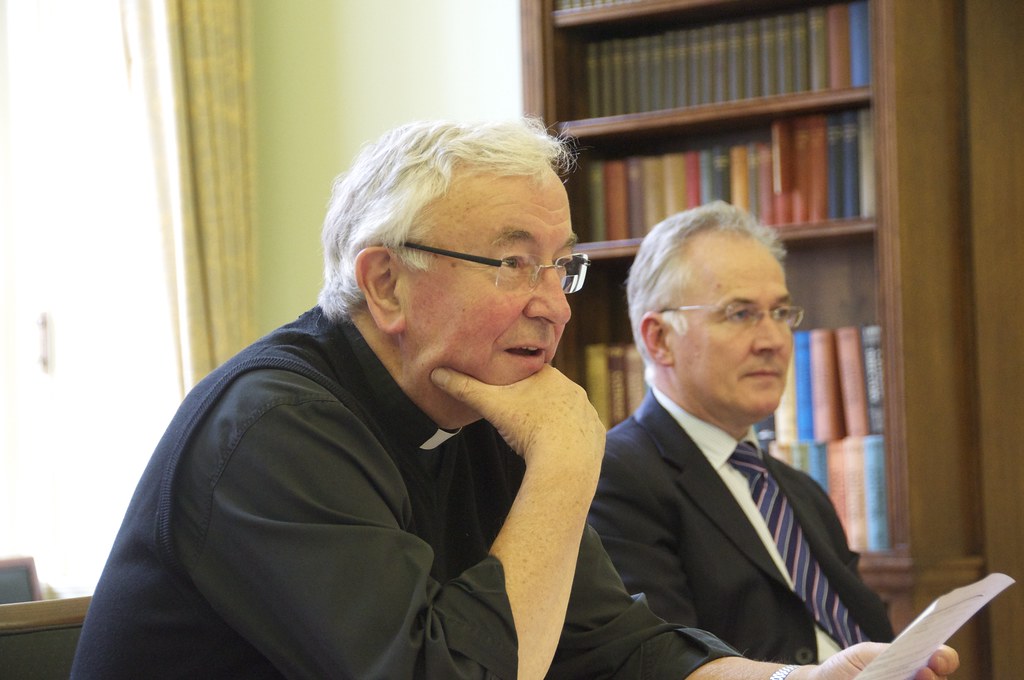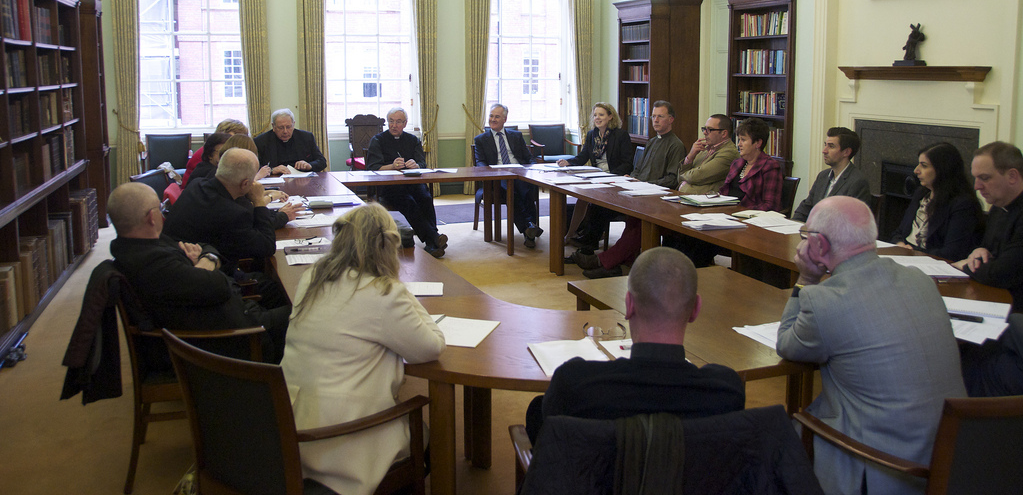Cardinal Vincent Nichols hosted the first of a series of roundtables on food poverty on 2 May 2014 with representatives from Caritas Westminster, parishes and schools to discern the problem of food poverty at the local level and to coordinate the Church’s response. The roundtable aims to bring together representatives from parishes and schools across London and Hertfordshire who have already established local initiatives to deal with food poverty together with Caritas, the St Vincent de Paul Society and Magic Breakfasts, to help coordinate the effort and provide additional support at grassroots level.
Among the projects represented were four food banks established in different parts of the Diocese, Borehamwood, East Finchley, Bow and St Albans and District, in collaboration with religious and secular partners, as well as initiatives in schools to tackle food poverty among pupils and their families.
The roundtable began with a reflection from Fr Michael Dunne about food poverty in the light of the Gospel.
The session continued with a listening exercise to the everyday experience of the volunteers who work directly with individuals and families affected by food poverty. It quickly emerged that food poverty often points to a complex set of problems faced by the most vulnerable in these communities, necessitating a more robust response that aims to help individuals address other needs.
Norah Flatley, Headteacher of Blessed Sacrament RC Primary School in King’s Cross, one of five Westminster schools currently participating in the joint Caritas and Magic Breakfast programme, echoing John’s Gospel (Jn 10:10) said, ‘It is of primary importance to look at the wholeness of life, and to support each child across all dimensions, physical, academic, familial, relational and spiritual, so that they can thrive as a whole person.’
The same experience was shared among all other participants, who work with vulnerable people in their communities to tackle other problems, such as fuel poverty, unmanageable debt, homelessness, low literacy, substance abuse, mental health issues, child care issues, and domestic violence, either directly or through referrals to other local services who have the expertise and resources to address these issues.
Restoring dignity to those who live with food poverty was a priority in all circumstances, whether through providing assistance, extending the hand of friendship and solidarity, alleviating the stress that accompanies deprivation, or helping keep families together.

Cardinal Vincent praised the initiative taken by these local groups to address a critical need in their communities to reach out to the most vulnerable, ‘The care you show your neighbours reflects the truth that everyone is made in the image of God. Each one of us is uniquely loved by the God who has formed a covenant with us, the God who wills that each person should enjoy a dignified life. Food expresses powerfully this covenantal love of God. So when people suffer want of food, we feel a deep sense of abhorrence.’
He reassured all participants of his commitment to support their grassroots work by providing central coordination through Caritas Westminster, the organisation which he founded in May 2012 to identify and address issues of poverty and social exclusion, to create links with other parishes, schools, charities and individuals, and to build on their work.
The data and findings gathered from the participants will also form the basis of the submission from Westminster Diocese to the All Party Parliamentary Group on Hunger and Food Poverty.




